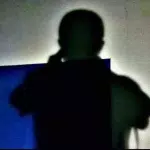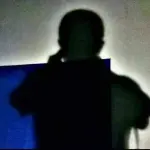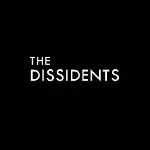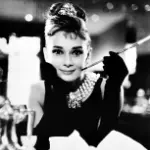"To write poetry after Auschwitz is barbarism.” (Nach Auschwitz ein Gedicht zu schreiben, ist barbarisch.) The sentence written by the German philosopher Theodor W. Adorno in 1949, is often simplified in later interpretations, suggesting that after a tremendous catastrophe and holocaust, any form of engagement in literature or art creations seem cruel. However, what about works of art that entirely focus on the disasters themselves, delve into the human nature, and reflect on how they came into being? In other words, are poems barbaric if they are about Auschwitz? Is a great film like "Schindler's List" still considered cruel?

Let's take a look at "The Zone of Interest", where the entire story unfolds in Auschwitz. Produced by A24, the film is contending for prestigious awards at this year's Oscars, including Best Picture and Best International Feature. If we were to summarize the plot with a single sentence in reference to the philosophical quote, it might be: "Auschwitz, life is blissful." How does that sound? Would Adorno consider this film cruelty?
The film begins with an extended black screen accompanied by white noise-like sounds. Then it cuts to the first scene of a lush summer riverside, where a joyful family is playing. After frolicking in the water, they drive back to their grand estate as night falls. The contemporary cinematography and color tones as well as the Bauhaus architectural style strikes as a story about a present-day European middle-class family brewing Michael Haneke-esque conflicts and crises in their seemingly happy lives. It’s not until the next morning, when the father, with his eyes covered by the children, walks towards his birthday gift in his Nazi military uniform that I realize this is a film set against the backdrop of World War II.

Usually, movies depicting individuals under significant historical periods, or specifically, in concentration camps, often followed a formula of briefly outlining a happy family before randomly thrusting them into desperations (as seen in "Life is Beautiful") to create tragedies. "The Zone of Interest" takes a completely different approach. The head of the seemingly happy family at the beginning is none other than Rudolf Höss, the commander of the Auschwitz concentration camp responsible for the systematic slaughter of Jews. On his birthday, in addition to the kayak prepared as a gift by his family, the courtyard is filled with numerous soldiers assembled to wish their leader well. Not forgetting his duties even during the celebration, the highly professional Höss, donned in a crisp military uniform, mounts a majestic horse, takes a right turn, and heads into Auschwitz.
Yes, this commander dedicated to his job has built his family mansion right at the entrance of the concentration camp, extending into a garden adjacent to the high walls of the camp. On one side, there are vegetables and fruits, slides and pools, and the cheerful laughter of children. On the other side are dank workshops, crowded dormitories, and Jewish people waiting to enter the death gas chambers. Smoke billows from the crematorium, while on the mansion's side, servants are presenting newly arrived gold, silver jewelry and mink coats before the wife of the commander. After all, the original owners of these possessions have been reduced to mere cold numbers on the other side. One side is a death hell, the other is an authoritarian paradise.

"Have been completely incinerated…Seven hours. Four to five hundred at once…the chamber directly opposite the fire zone, which is burning at around a thousand degrees, has by now cooled to around forty degrees…..." reports the engineers to the commander on how to improve efficiency. How gruesome and cruel! Yet that’s what this chilling "poetry of Auschwitz" is all about.
Now let’s return to Adorno's statement. In 1949, the philosopher published an article containing this famous quote in "Cultural Criticism and Society." The whole passage in the ending part reads: "The more total society becomes, the greater the reification of the mind and the more paradoxical its effort to escape reification on its own. Even the most extreme consciousness of doom threatens to degenerate into idle chatter. Cultural criticism finds itself faced with the final stage of the dialectic of culture and barbarism. To write poetry after Auschwitz is barbarism. And this corrodes even the knowledge of why it has become impossible to write poetry today. Absolute reification, which presupposed intellectual progress as one of its elements, is now preparing to absorb the mind entirely. Critical intelligence cannot be equal to this challenge as long as it confines itself to self-satisfied contemplation." What difficult German philosophy to understand!

Such ideas can be more easily understood by connecting it with films like "The Zone of Interest" and the one from the year before, "Die Wannseekonferenz." We can see that contemporary films on Holocaust are beginning to present that history with an extremely calm tone, displaying a very German-esque "rationality." Historical massacres in our minds always equals to aggressive impulses and primitively brutal acts. However, the Nazi camp actions, especially in Auschwitz, were extremely meticulously planned. At work, Höss studies efficiency with engineering blueprints; during rest, he admires the material and streamlined the design of a kayak along with his wife and children. After World War II, Adorno realized that Germany's heinous war crimes has a lot to do with its cultural aesthetic pursuit of efficiency and meticulousness. Hence, he began to emphasize that civilization and barbarism can paradoxically unified in one. German and even Western civilization, as they developed to a certain stage, were doomed to bring up the Holocaust. In this context, the previously held beliefs about the rationality and romantic imagination of Germany, as well as the artistic works that emerged from them, are intrinsically barbarism.

For a film featuring sinners of Holocaust as protagonists , its themes and expressions diverge significantly from previous outstanding works that focuses on victims and saviors. For example, "The Boy in the Striped Pyjamas" and "Schindler's List" portray a multitude of victims within high walls, their tear-inducing destinies and the lead Schindler’s affecting acts of protecting them out of compassion.
In contrast, in films like "Die Wannseekonferenz," where there are no Jewish characters present, the narrative shifts to a group of German military officers calmly and efficiently discussing a systematic extermination plan at the Wannsee Villa on the outskirts of Berlin. In "The Zone of Interest," the introduced Jewish characters serve temporarily as useful assistants to the main characters in maintaining their "authoritarian paradise." Once their utility diminishes, they inevitably face the path leading to gas chambers and crematoriums.

Living during the same time as Adorno and having interacted with our German philosopher through letters, Jewish poet Paul Celan came across Adorno's famous line after completing his masterpiece "Todesfuge" (Death Fugue). "After Auschwitz, to write poetry is barbarism." Reading the sentence, Celan soon realized that the language he had used in the past to describe what he was experiencing and to depict a world that had given rise to such a catastrophe, felt pale and powerless. Consequently, he decided to reconceive a new, "unbeautiful" language.
Where sound directions are concerned, director Jonathan Glazer incorporates the distinctive sound experiment style he pioneered in his acclaimed work "Under the Skin" into "The Zone of Interest." He intermittently disrupts the seamless narrative, creating a disjunctive effect that provides viewers with space for contemplation. It's uncertain whether this director, known for his strong artistic style, is also aware that "Schindler's List" represents an "old, beautiful language" and now a new language is required to write “poetry” about Auschwitz , that is not as easily comprehensible and doesn't readily evoke cheap emotions from the audience.

After being promoted and walking towards his new office, Höss suddenly stops in the grand hallway and vomits. The scene then shifts to present day, where a group of janitors is cleaning the Auschwitz-Birkenau State Museum. Then it cuts back to the World War II era with Höss continuing to descend the stairs. Before long, he will return to Auschwitz to reunite with his family, leading a happy life. Meanwhile, on the other side of the high walls of his home, 700,000 Hungarian Jews are being transported to the horrifying Auschwitz concentration camp.


















































Share your thoughts!
Be the first to start the conversation.